Tips For Growing Hyssop Plant In Your Garden
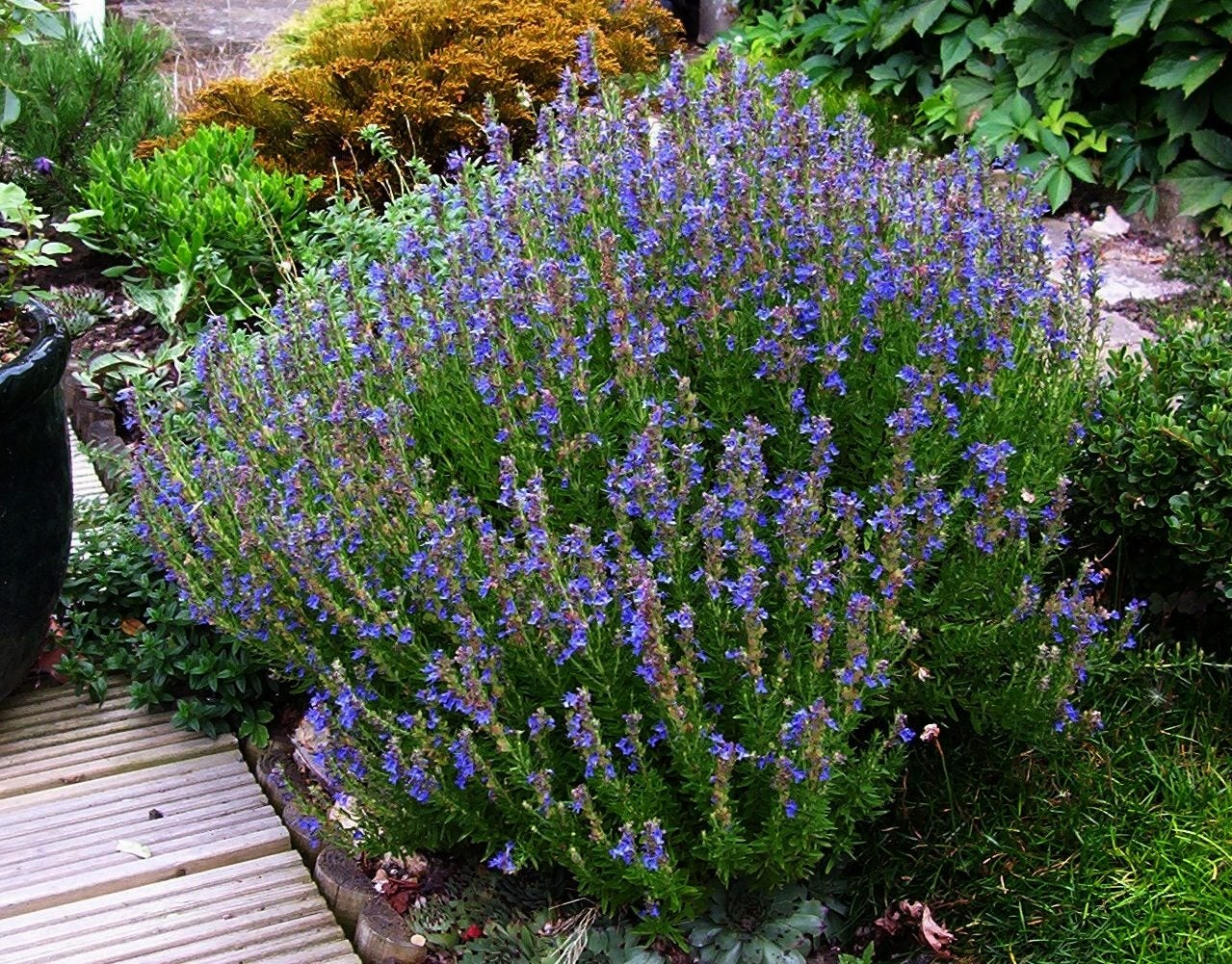

Hyssop (Hysoppus officinalis) is an attractive flowering herb commonly grown for its flavorful leaves. Growing a hyssop plant is easy and makes a lovely addition to the garden. The spikes of blue, pink, or red flowers are great for attracting important pollinators to the landscape as well.
Growing Hyssop as a Garden Plant
Although most hyssop plants are grown in herb gardens, they also have their place in flower gardens as border plants. Hyssop makes a great edging plant when grown in masses as well, but did you know that hyssop plants can also be grown in containers? When you grow hyssop in containers, make sure the pot is large enough to accommodate the large root systems. Hyssop plants prefer to be grown in areas with full sun or partial shade. They need well-drained soil, a bit on the dry side, amended with organic matter.
How to Plant Hyssop Seed
The most common way to plant hyssop is by sowing seeds. Sow hyssop seeds indoors or directly in the garden about eight to 10 weeks before the last frost. Plant hyssop just beneath the soil's surface or about a quarter inch (0.6 cm.) deep. Hyssop seeds usually take between 14 and 21 days to germinate and can be transplanted (if sown indoors) in the garden after the threat of frost has ended in spring.
Space hyssop plants about 6 to 12 inches (15-30 cm.) apart. Once blooming has ceased and seed capsules have completely dried, they can be collected and stored for growing hyssop the next season. In some areas, however, hyssop plants will self-seed readily. In addition, the plants can be divided in fall.
Harvesting & Pruning Hyssop Plants
If growing hyssop for use in the kitchen, it is best used fresh. However, it can be dried or frozen and stored for later use. When harvesting a hyssop plant, cut it in the morning hours once any dew has dried. Hang the plants upside down in small bunches to dry in a dark, well-ventilated area. Alternatively, you can place the leaves in a plastic bag after removing them from the stems and place in the freezer until ready to use.
When you grow hyssop as a garden plant, trim back established hyssop plants heavily in early spring and again after flowering to prevent them from becoming too spindly. Cutting back the foliage also encourages bushier plants. Growing hyssop as a garden plant is not only easy but can also attract wildlife like butterflies and hummingbirds to the garden. In addition, hyssop leaves can be harvested for use in salads, soups and other dishes.
Gardening tips, videos, info and more delivered right to your inbox!
Sign up for the Gardening Know How newsletter today and receive a free copy of our e-book "How to Grow Delicious Tomatoes".

Nikki Tilley has been gardening for nearly three decades. The former Senior Editor and Archivist of Gardening Know How, Nikki has also authored six gardening books.
-
 Looking For Plants To Give You The Soft And Fuzzies? Try These 5 Fuzzy Leaf Plant Options
Looking For Plants To Give You The Soft And Fuzzies? Try These 5 Fuzzy Leaf Plant OptionsLovers of texture, drama, silver foliage and tactile plants will adore these special sensory garden additions. These fuzzy leaf plant options will leave you all aglow
By Susan Albert
-
 Get Ready For A Summer Of Hummers! Grow These Full Sun Hummingbird Plants and Flowers
Get Ready For A Summer Of Hummers! Grow These Full Sun Hummingbird Plants and FlowersIf you’re lucky enough to enjoy a sunny backyard, make sure you are maxing out on your pollinator opportunities and grow these full sun hummingbird plants and flowers
By Tonya Barnett
-
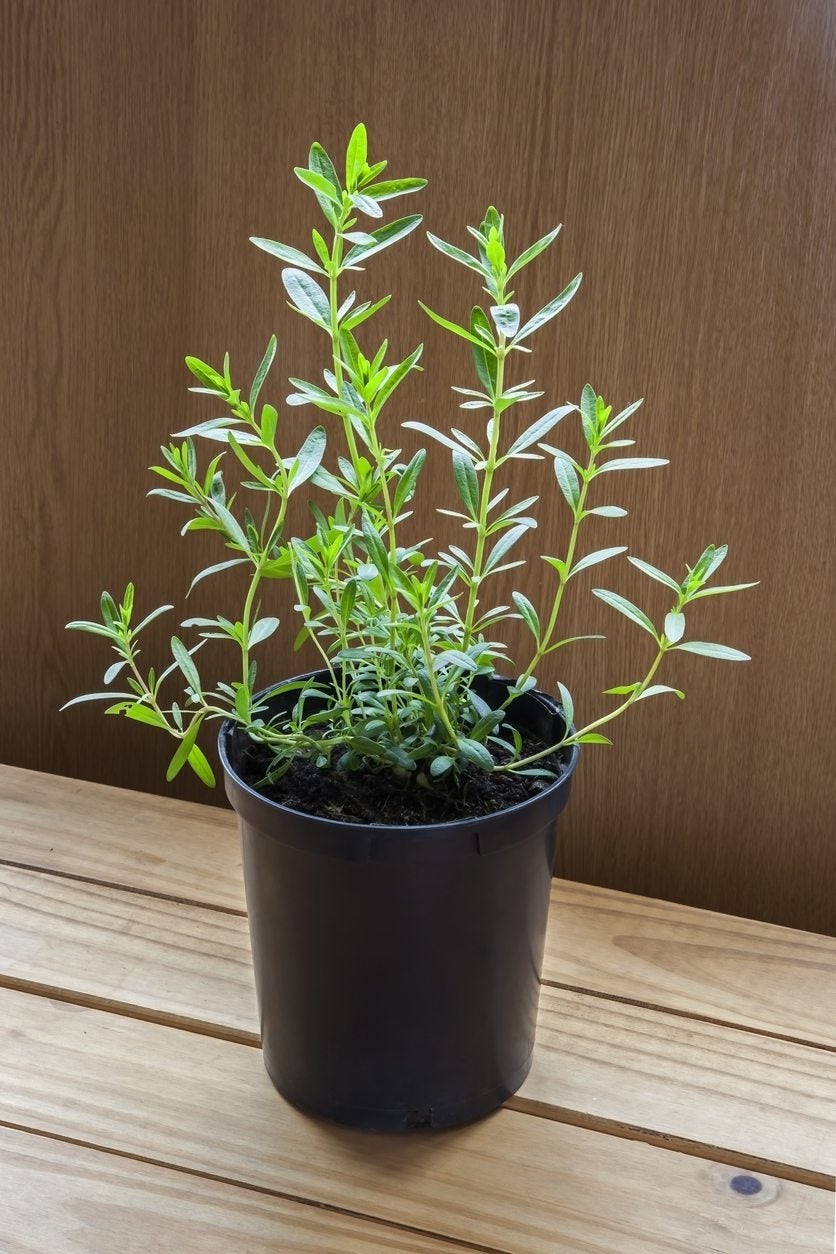 Hyssop Plants In Containers – Can You Grow Hyssop In Pots
Hyssop Plants In Containers – Can You Grow Hyssop In PotsHyssop is, like many other herbs, very tolerant of a variety of environments. But how about growing hyssop plants in containers? Can you grow hyssop in pots? Click on this article to find out how to grow a hyssop plant in a pot.
By Amy Grant
-
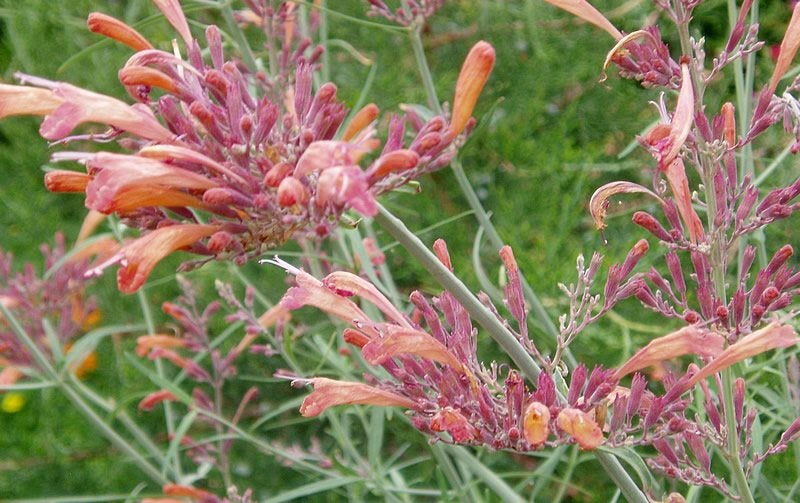 Sunset Hyssop Information: How To Grow Sunset Hyssop Plants
Sunset Hyssop Information: How To Grow Sunset Hyssop PlantsAs the name implies, sunset hyssop plants produce trumpet-shaped blooms that share the colors of the sunset. Growing sunset hyssop isn't difficult, as the plant is drought-tolerant and requires little maintenance. This article will help get your started.
By Mary H. Dyer
-
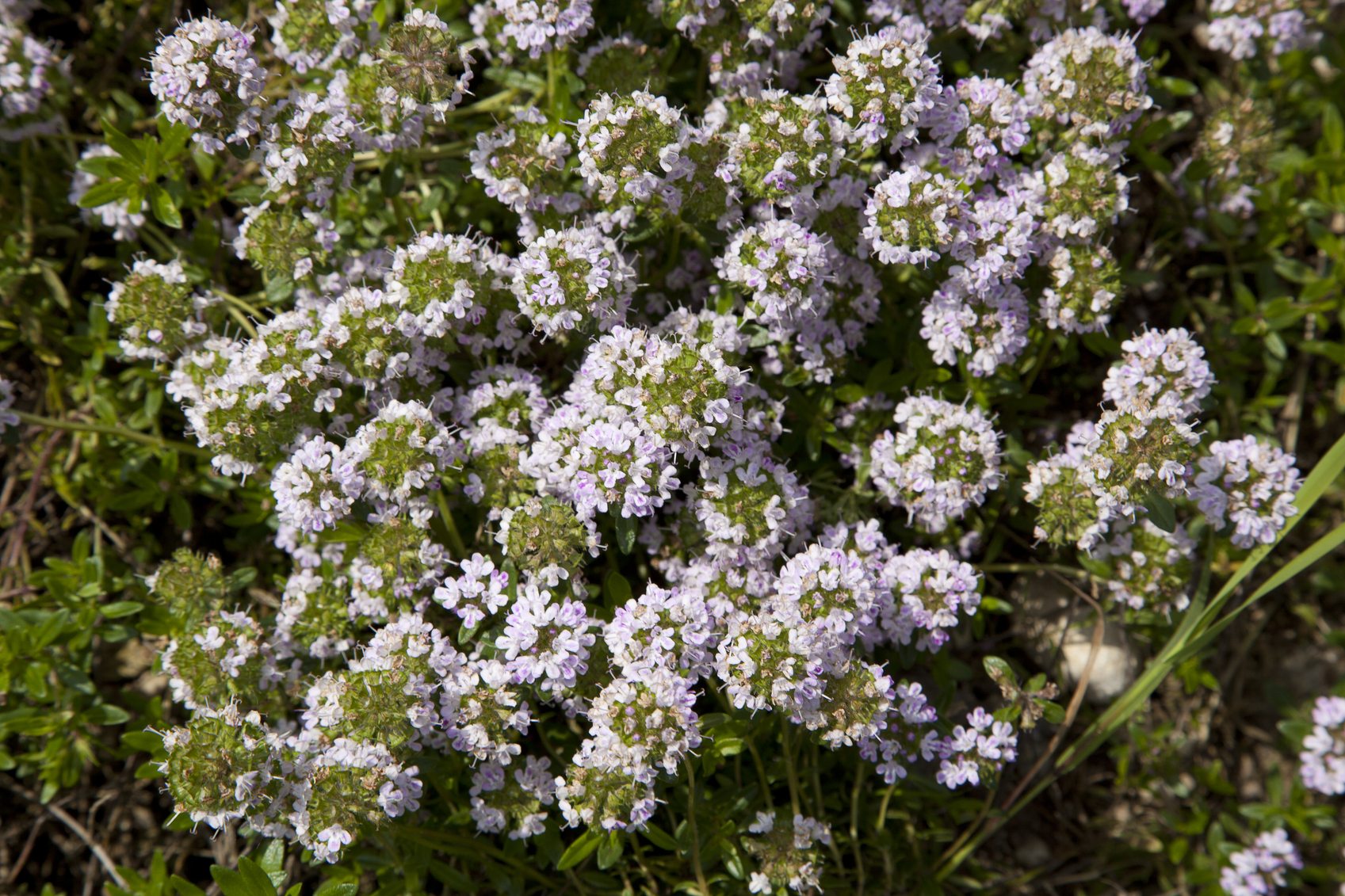 Agastache Plant Types – Varieties Of Hyssop For The Garden
Agastache Plant Types – Varieties Of Hyssop For The GardenAgastache varieties may cross pollinate and produce specimens that do not mimic the parent plant. This can either be a fun occurrence or a nuisance if your preferred species is taken over by a cross. Learn more about the types of Agastache in this article.
By Bonnie L. Grant
-
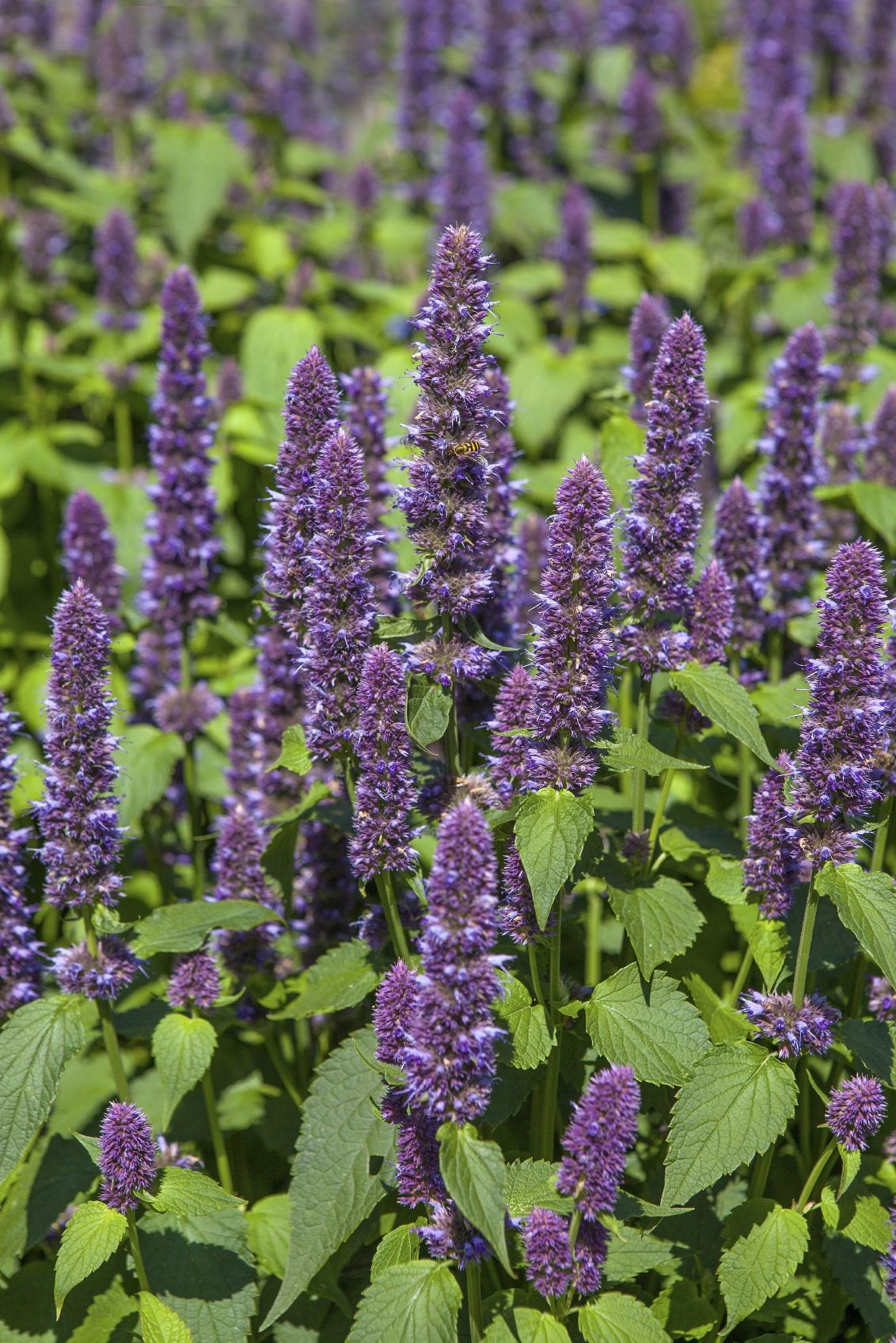 Cutting Back Anise Hyssop: How And When To Prune Agastache
Cutting Back Anise Hyssop: How And When To Prune AgastacheAgastache, or anise hyssop, is an aromatic, culinary, cosmetic, and medicinal herb. Light trimming will keep the plant looking its best. In this article, we will discuss when and how to prune Agastache for the best results and a healthy plant.
By Bonnie L. Grant
-
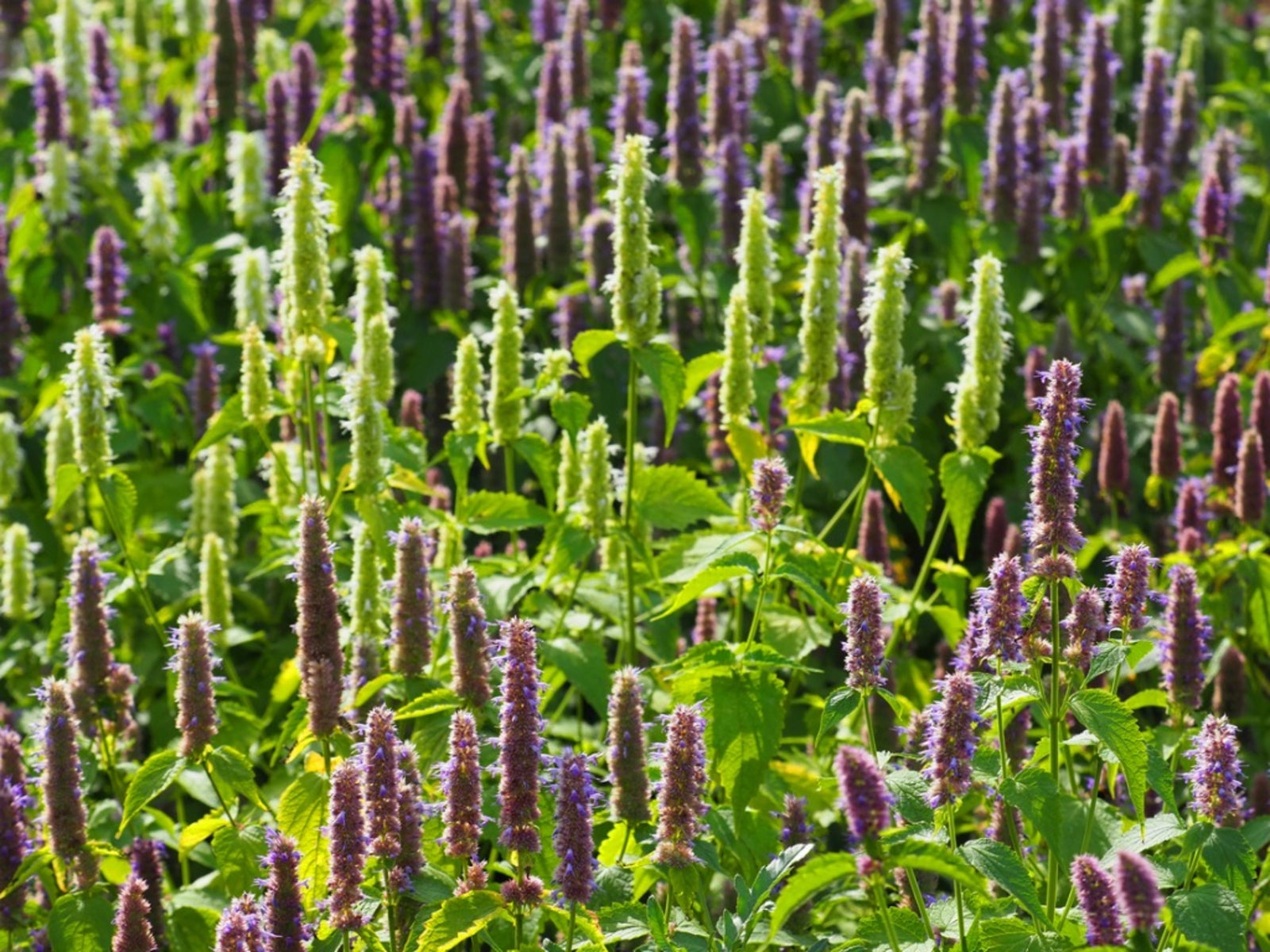 Agastache Flower - How To Grow Agastache
Agastache Flower - How To Grow AgastacheAgastache is a perennial plant with lovely flower spires that bloom all season long. Learning how to grow Agastache requires no special skills or care. The information in this article can help get you started.
By Bonnie L. Grant